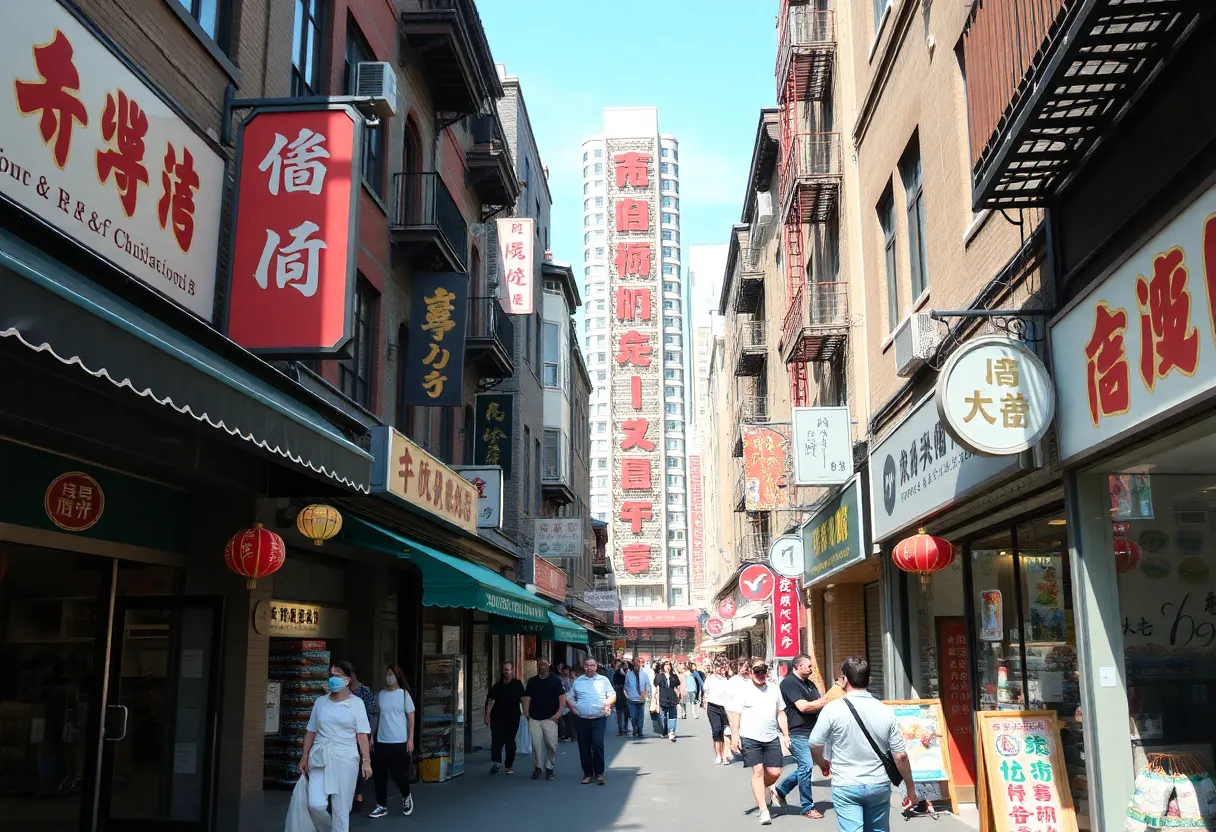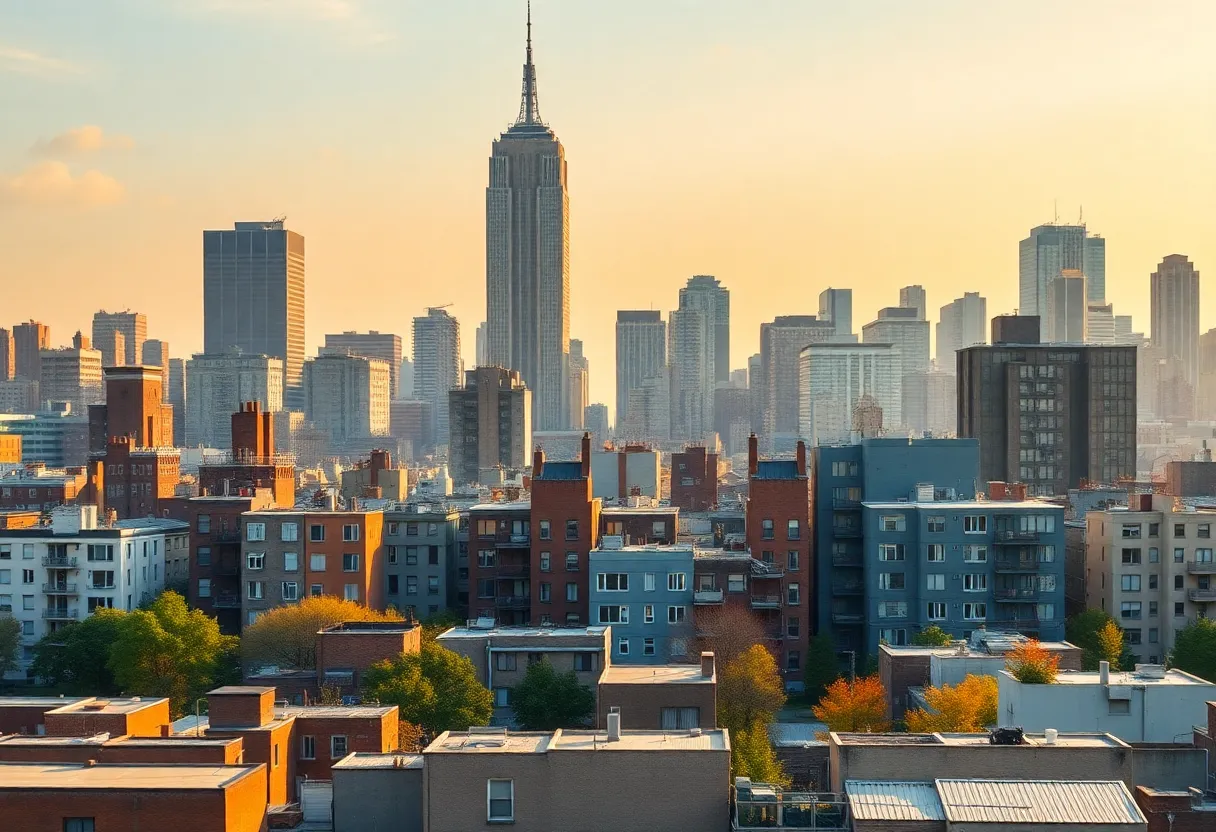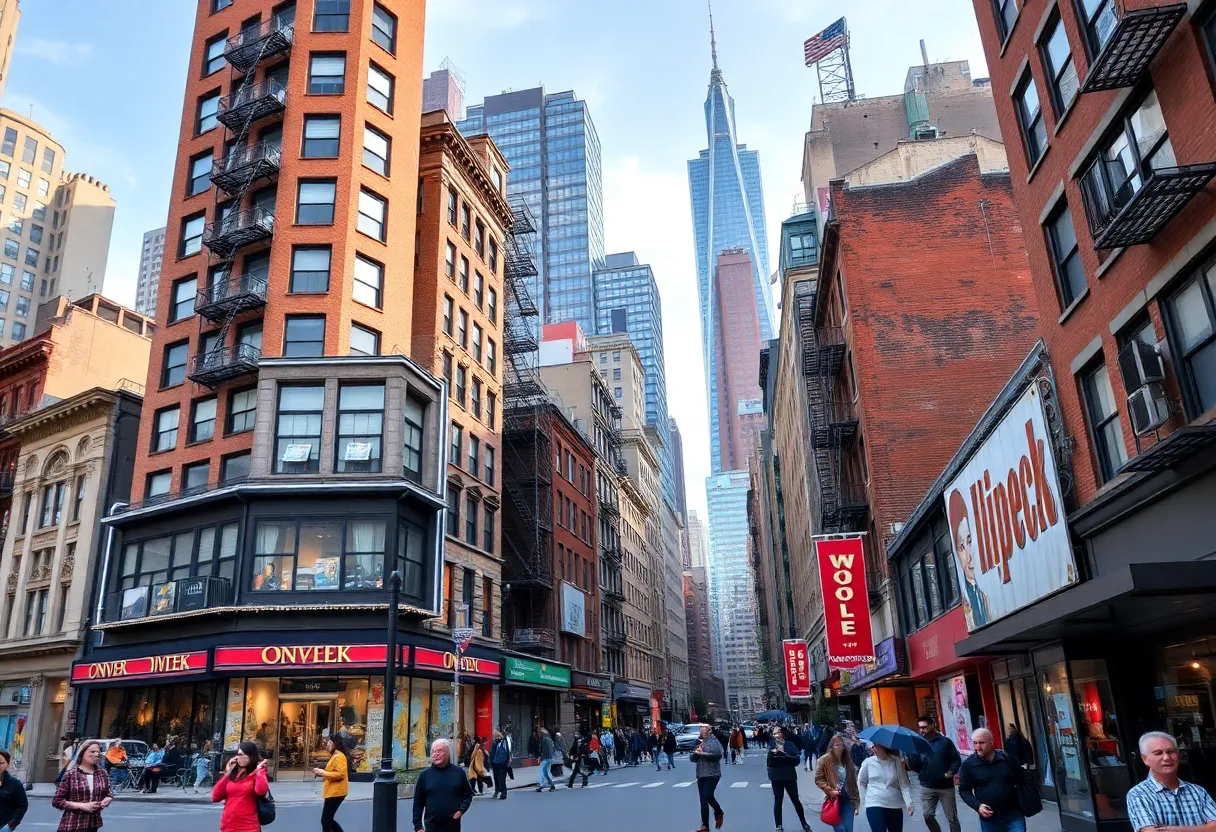News Summary
Business owners in New York City’s Chinatown are grappling with significant challenges due to rising costs linked to President Trump’s tariffs on Chinese imports. With tariff rates soaring from 34% to 145%, many local businesses like ice cream shops are finding it increasingly difficult to maintain affordable prices. The situation is exacerbated by rising costs of goods, prompting some to raise prices while trying to keep certain products accessible due to customer loyalty concerns. The economic strain is felt not just in Chinatown but across the country, impacting consumer prices and business viability.
New York City – Business owners in New York’s Chinatown are facing significant challenges attributed to rising costs that have escalated due to President Trump’s tariffs on Chinese imports. With many local businesses feeling the pinch, owners are increasingly concerned about their economic viability and the future of their operations.
Christina Seid, who has run her family’s ice cream shop for nearly 50 years, is trying to keep her prices affordable despite rising expenses. The costs of supplies, including cups made in California and printed in Taiwan, have become more complex due to the tariffs. Seid is not alone, as many business owners in the area are struggling to maintain reasonable prices for their goods.
The tariffs, which have increased rates on Chinese imports dramatically from 34% to 145%, have a notable impact on local businesses. Compared to the 10% tariffs imposed on imports from other countries, these heightened rates place an unfair burden on Chinatown merchants. Items affected include merchandise, utensils, and packaging for food products such as ice cream cakes. Some business owners, like Jen, have raised prices on certain goods but are keeping popular items affordable, choosing to absorb costs on others to maintain customer loyalty.
M.D. Ali, another business owner in the Chinatown area, reported that at least 60% of his products come from China. Some suppliers have raised their prices by up to 30%, forcing him to increase prices for customers. However, Ali is still losing money as he hasn’t raised his prices sufficiently to cover the increased costs fully. This scenario highlights the struggle for many businesses navigating the current economic landscape affected by tariffs.
Business owners across the country, particularly in San Francisco’s Chinatown, are experiencing similar issues. Local merchants there report importing up to 90% of their goods from China and facing price increases ranging from 30% to 100%. Many small businesses are attempting to delay raising prices while exhausting existing inventory, hoping for a potential resolution to the trade war that could alleviate their current burdens.
Concerns around consumer confidence have also emerged due to the uncertainty surrounding tariffs and broader trade policies. Online retailers such as Temu and Shein have begun displaying import charges that can significantly increase the total cost of items for consumers, contributing to rising prices across various sectors. Retailers like Cafe Iterum in Boston are preparing for future price hikes associated with tariffs despite efforts to source materials locally whenever feasible.
The implications of rising costs extend beyond just Chinatown; it affects consumers nationwide. As food services encounter increasing expenses for coffee and other products that heavily depend on international supply chains, they face the risk of empty shelves and higher prices. The uncertainty surrounding trade policies has left businesses struggling to plan effectively and maintain reasonable pricing amid changing economic conditions.
Local lawmakers, including Senate representatives and California Assemblymember Matt Haney, are advocating against tariffs that detrimentally impact local businesses. Their efforts highlight the ongoing dialogue about the economic pressures created by current trade policies and tariffs and their effects on community establishments.
As the situation unfolds, many Chinatown business owners and their counterparts nationwide remain hopeful for a resolution to the trade tensions, understanding that their future operations and pricing strategies are tied to the outcome of ongoing trade negotiations. In an environment of fluctuating prices and costs, the ability to adapt to these changes will be critical for their survival.
Deeper Dive: News & Info About This Topic
HERE Resources
New York’s Business Investment Opportunities Soar in 2024
Additional Resources
- Scripps News: New York’s Chinatown Noticing Impact of Trump’s Tariffs
- Wikipedia: Trade War
- KTVU: Bay Area Shops Brace for Rising Costs Amid U.S.-China Trade Tensions
- Google Search: China trade tariffs
- Boston.com: How Tariff Uncertainty is Impacting Boston Restaurants
- Encyclopedia Britannica: Tariff
- NBC New York: Chinatown Business Owners Worried About Impacts of Trump Administration Tariffs
- Google News: Impact of tariffs on businesses








